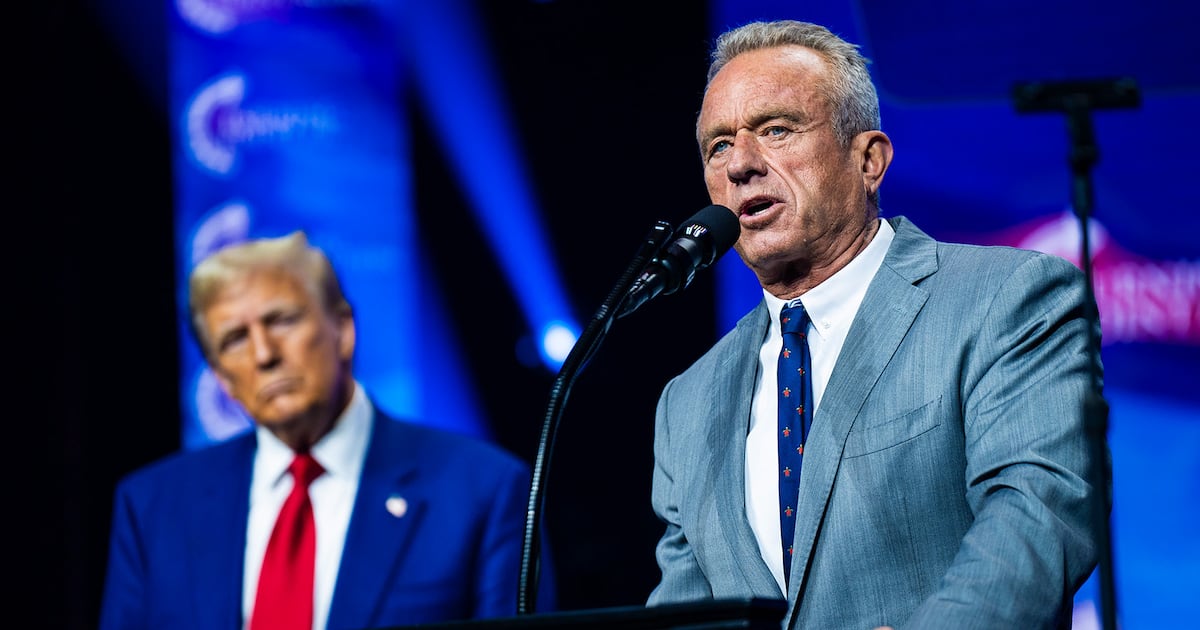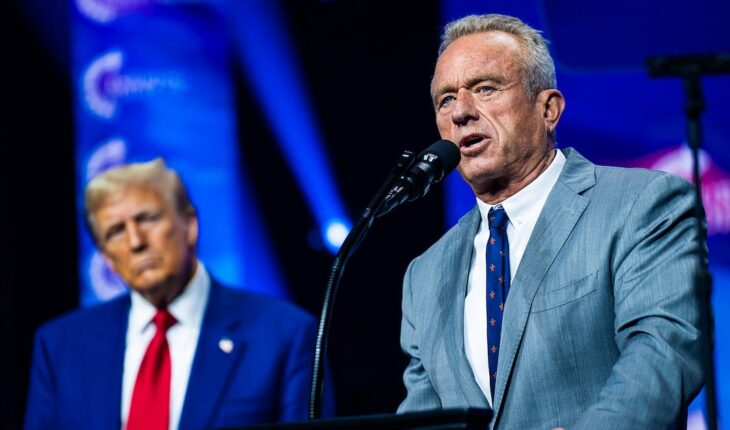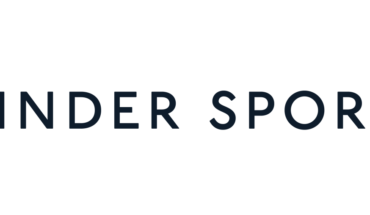
From stem cells to replacing medicine with supplements, wellness practices that have been gaining traction for years may soon have a direct line to the White House.
President-elect Donald Trump announced Robert F. Kennedy Jr. as his pick for Health and Human Services secretary on Nov. 14. The former third-party presidential candidate, who is known for his fringe views around vaccines, Covid-19, WiFi and more, dropped out and endorsed Trump in August. While some Senate Republicans have released positive statements about him, it’s still unclear if he will have enough Senate support for confirmation.
Most reports on the selection have focused on policies Kennedy could push in healthcare and food, especially considering his anti-vaccine rhetoric. But a much wider range of industries are regulated by HHS through the Food and Drug Administration, including beauty and wellness.
Trump has said he’s going to let Kennedy “go wild” on health, food and medicines, and that people being “protected from harmful chemicals” was a priority. Kennedy has vowed to crack down on processed food and support research with the goal of suing drugmakers. But when it comes to the wellness industry outside of pharmaceuticals, going wild does not seem to be about adding restrictions, but reducing them.
On Oct. 25, Kennedy tweeted his plans for the FDA, which reads like a wellness influencer’s Instagram feed, appearing to endorse deregulation of supplements and experimental wellness fads.
The author has shared a Tweet.You will need to accept and consent to the use of cookies and similar technologies by our third-party partners (including: YouTube, Instagram or Twitter), in order to view embedded content in this article and others you may visit in future.
“FDA’s war on public health is about to end,” he tweeted, accusing the agency of “aggressive suppression” of a wide range of treatments and products that can be found at hip spas or Erewhon, including nutraceuticals (a supplements subcategory), raw milk (unpasteurised milk that is legal for retail sale in some states), hyperbaric oxygen (a special chamber for breathing pure oxygen) and more. This tracks with the wellness set that has coalesced around Kennedy as he gained a following of the so-called crunchy moms that have embraced right-wing public health ideology.
Over the past year, Kennedy fashioned himself a health guru, hosting a Goop-style wellness summit earlier this year attended by various influencers and brand founders. Adopting the Trump-inspired tagline “Make America Healthy Again,” his wellness-oriented supporters have embraced the concept of “MAHA Moms,” and they can identify themselves with merch from his online store such as an organic cotton tote bag or a beige-and-green “MAHA Moms Club” t-shirt.
What this all means for beauty and wellness is unclear. The FDA oversees the enforcement of the Modernization of Cosmetics Regulation Act of 2022 (MoCRA), but Kennedy has focused more on restricting pharmaceuticals, not beauty products. His statement about the FDA’s supposed war on “sunshine,” however, hints at an anti-sunscreen sentiment that has taken hold among a segment of wellness influencers that could affect UV filter approval.
Many supplement makers or alternative wellness brands, as well as supplement trade groups such as the Natural Products Association, have expressed excitement at the prospect of a Kennedy-run HHS. It could lead to even less oversight than they already have in their categorisation as food rather than drugs, and more leeway to make health claims. But the effects will likely be polarising, embraced by some consumers and causing scepticism among others.
“We’re very limited in what we can’t even think about saying, versus what we know confidently in free-form conversation what we would love to say. This would be more free speech in some ways,” said Shizu Okusa, the founder of Apothékary, which makes dietary supplements for a wide range of categories such as sleep, stress, and digestion. In November, Apothékary closed an $8 million pre-Series A funding round with investment from Japanese beauty conglomerate Shiseido.
Hawking Wellness Fads
Kennedy’s appeal — as well as that of the wellness space at large — comes from a widespread frustration with American healthcare. Nearly 3 out of 4 Americans say the country’s medical system fails them in some way, according to a 2023 survey from the American Academy of Physician Associates. Wellness companies and influencers have been quick to capitalise on this sentiment with a wide variety of supplements and treatments marketed by influencers tapping into — and stoking — distrust in the medical industry.
Kennedy has been vocal about his own dismay with American healthcare, targeting his ire toward prescription drugs, vaccines and food conglomerates. He has said that government health agencies should study whether anti-depression medicines cause school shootings and criticised GLP-1 weight-loss drugs like Ozempic.
He’s shown more openness, however, to supplements. Though they’re regulated as food rather than drugs (thanks in part to their own powerful lobby), supplements have increasingly advertised themselves as substitutes for drugs in areas like weight loss, anxiety, ADHD and depression. In his tweet, he endorsed controversial supplements like peptides, likely referring to the peptide hormones that have been abused by athletes for doping and banned for non-prescription sale. In describing an FDA “war” on vitamins, he’s been less vocal about frequent recalls of supplements found to contain dangerous ingredients like lead.
He’s found support from multiple supplement brand founders. Aubrey Marcus, who co-founded Onnit with podcaster Joe Rogan; Nitsa Citrine, co-founder of holistic supplement label Sun Potion; and Nikki Bostwick, founder of saffron supplement brand The Fullest all participated in his wellness summit. Jena Covello, founder of the Erewhon-stocked brand Agent Nateur, has frequently posted in support of Kennedy and Trump on Instagram.
Kennedy also mentioned multiple experimental wellness treatments that have become popular outside of their approved medical use. Hyperbaric oxygen, for example, is approved by the FDA for 13 medical uses such as scuba diving pressure reactions, but has been popping up in trendy spas like Remedy Place as an anti-aging treatment. Stem cell therapies are only approved by the FDA for “cancers and disorders that affect the blood and immune system,” but influencers, celebrities and athletes have flocked to the less-regulated Bahamas to take part in expensive stem cell treatments in search of a fountain of youth.
There’s a libertarian streak in this mindset, which is encapsulated in Kennedy’s support of raw milk. A staple of French cheesemakers, raw milk has caught on with a growing number of influencers and celebrities. Ballerina Farm’s Hannah Neelman recently posted on Instagram that she plans to sell raw milk. Goop founder Gwyneth Paltrow spoke about her love for raw milk brand Raw Farm USA (which is sold at cult favourite LA grocery store Erewhon) on a podcast.
Brand founders are excited at the prospect of less regulation of the product. “Some people may be influenced to start drinking raw milk because they have heard their favourite influencer or celebrity speak to the benefits of it, and in my opinion, that’s a great thing,” said Bethany Joy McDaniel, the founder of tallow-based skincare brand Primally Pure, which recently served raw milk lattes, smoothies and butter at an LA influencer event. She said that her family’s farm is considering a raw milk business.
But raw milk’s move from the fringe to the mainstream also means more opportunities for the spread of the H5N1 bird flu virus, which has seen recent outbreaks on dairy farms, said Dr. Meghan Davis, an associate professor at Johns Hopkins Bloomberg School of Public Health.
Eye on Deregulation
Many wellness brand founders are excited about what a Kennedy-run HHS would mean for their own businesses.
What Kennedy could actually accomplish with deregulation without help from Congress is more of a question, however. In the case of supplements, for instance, advertising claims are handled by the Federal Trade Commission, not the FDA.
Similarly, while Kennedy has also advocated for loosening restrictions on the use of health spending account money for supplements, it’s the IRS, not the FDA, that has recently indicated it wants to crack down on this practice. Legislation around raw milk, meanwhile, is left up to individual states, but the FDA does control whether it can be sold across state lines.
Kennedy has threatened to fire large numbers of employees to shake up the organisation, but the Trump administration itself may pose another obstacle. Historically, Trump was friendly to pharmaceutical giants; his last HHS secretary was Alex Azar, the former US president of Eli Lilly, which produces the next-generation GLP-1 drugs that Kennedy said he opposes. And he’s unlikely to have much power in fighting against pesticides like glyphosate, which falls under the purview of the EPA, which actually loosened restrictions on the chemical during the last Trump administration.
More broadly, the combination of mistrust in medical professionals and elevation of experimental treatments and supplements could be used to blur the line in some consumers’ minds regarding what counts as an actual treatment for medical conditions.
“You’re going to see brands that are probably making more loosey goosey claims that are not validated by science, and that’s definitely scary,” said Okusa. But at the same time, she said she feels that deregulation would be a “net positive” for her business.
Sign up to The Business of Beauty newsletter, your must-read source for the day’s most important beauty and wellness news and analysis.





